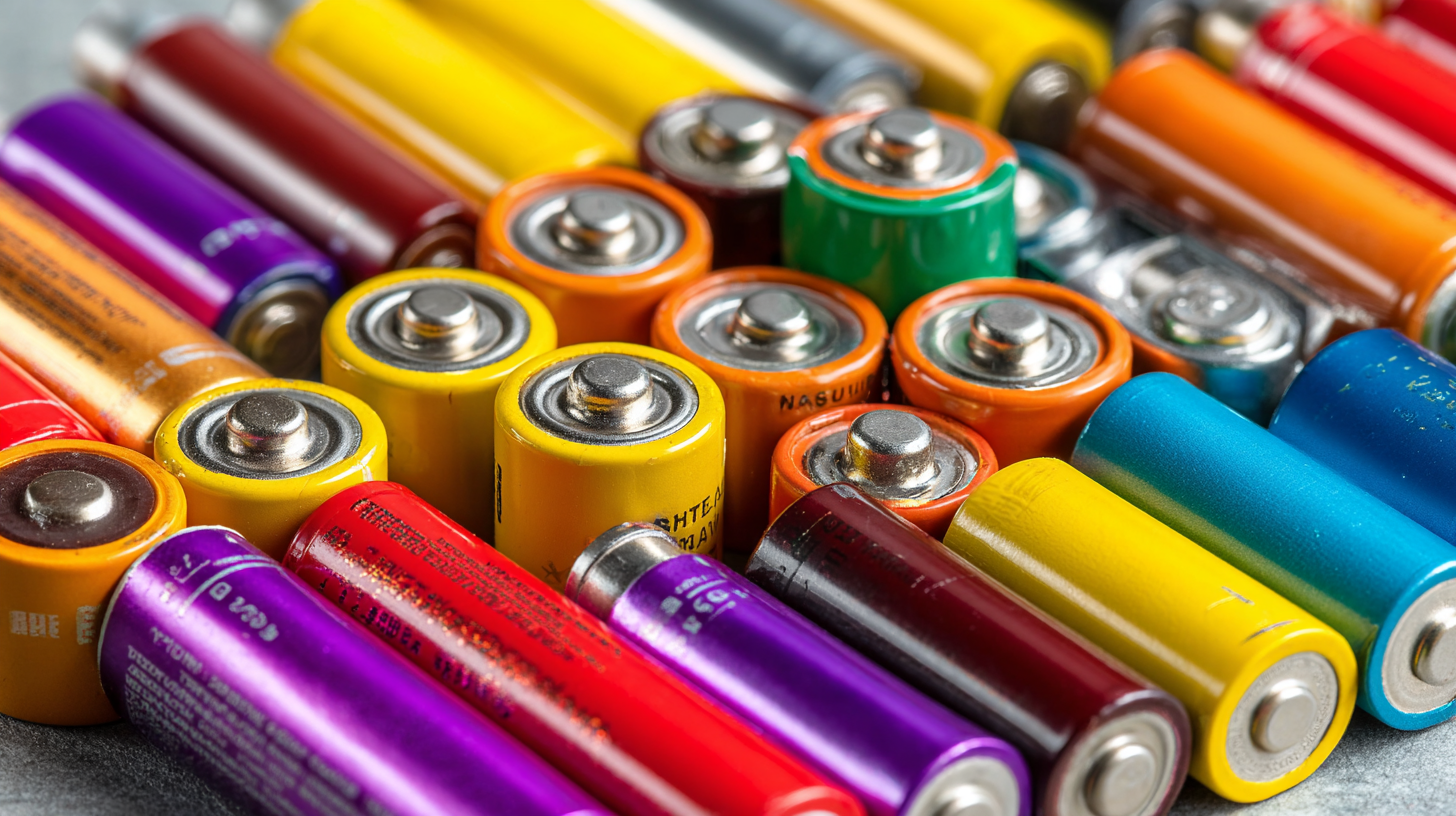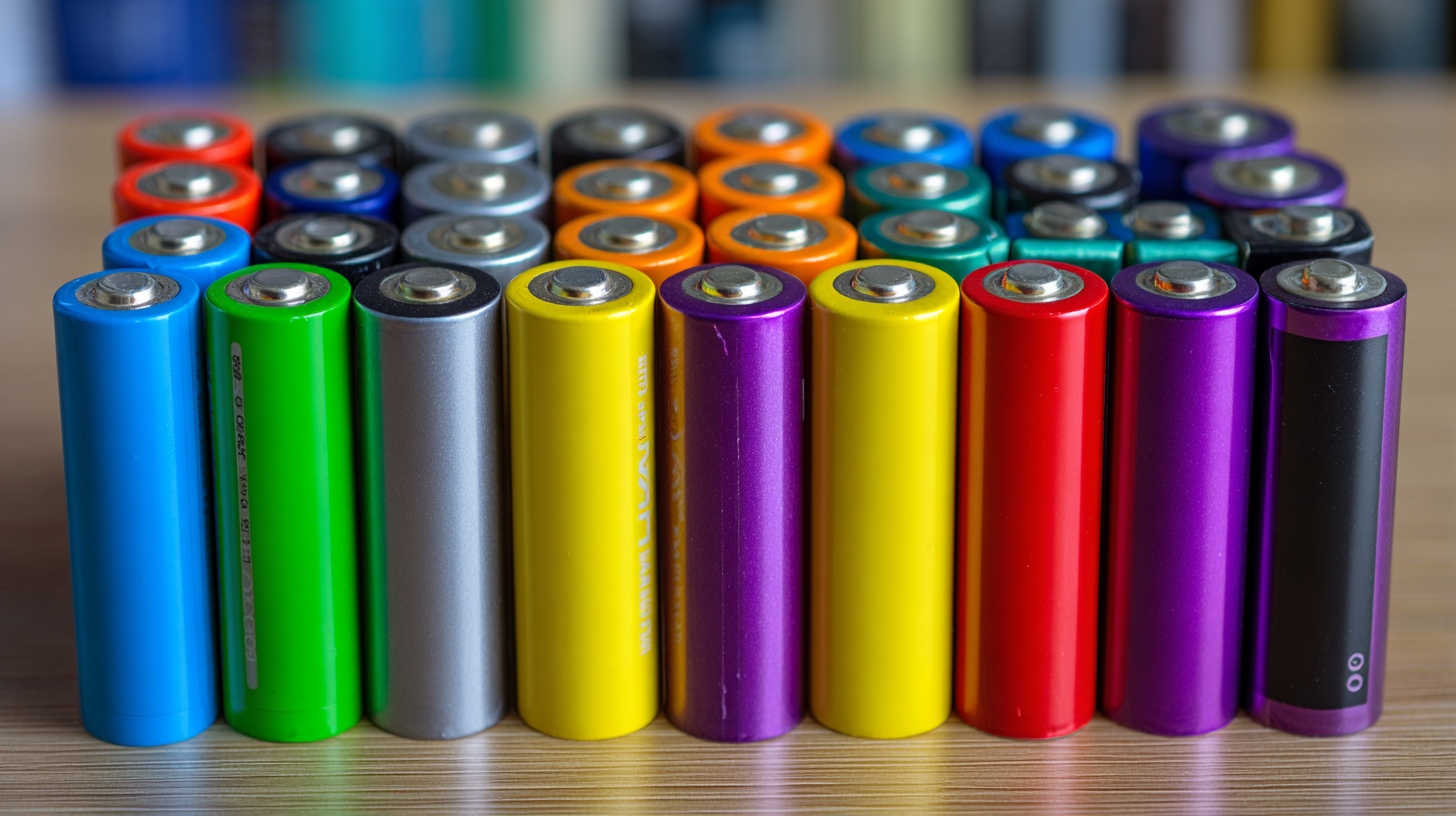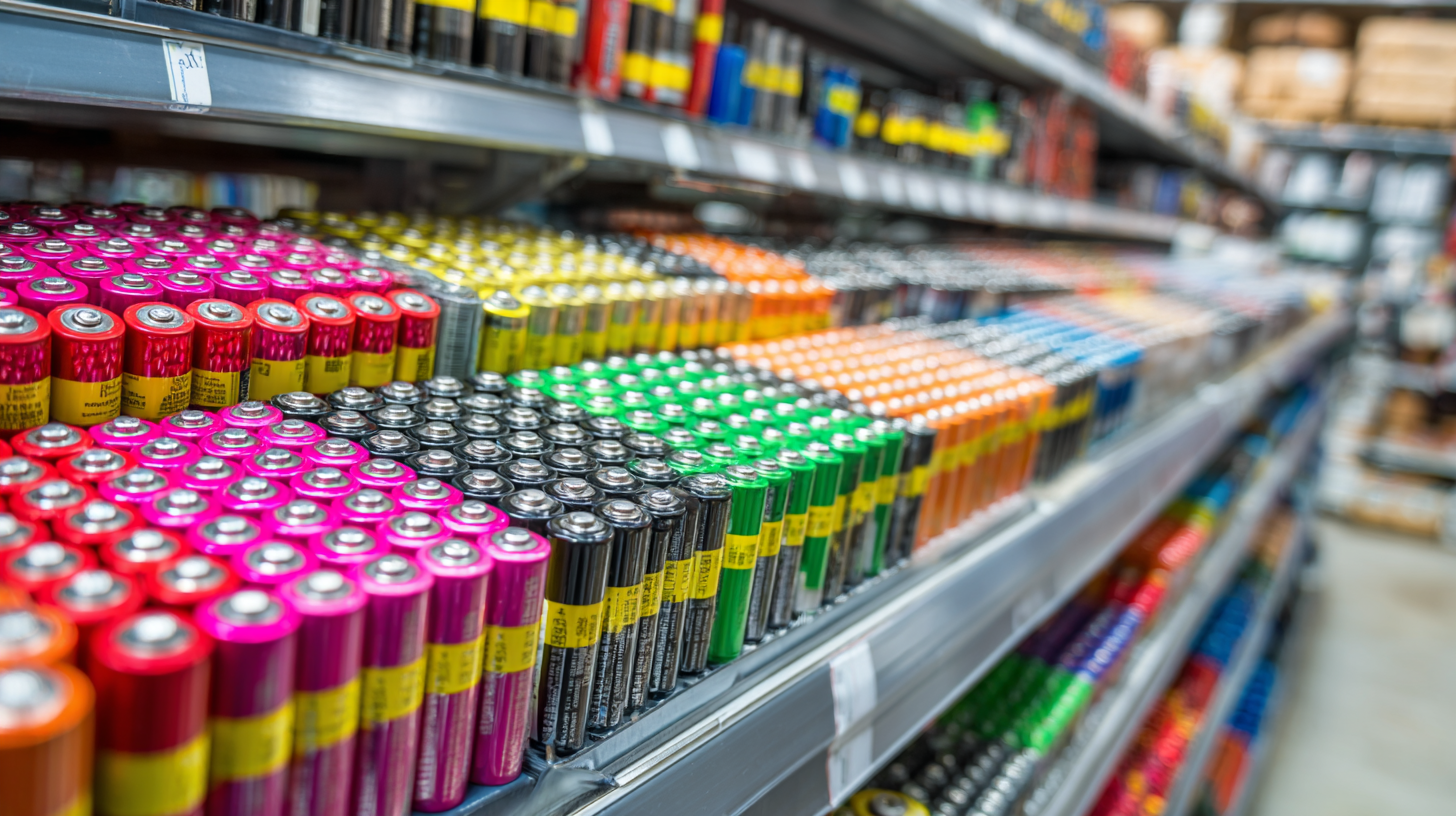How to Choose the Best Bulk AA Batteries for Your Business Needs
In today's fast-paced business environment, the importance of reliable power sources cannot be overstated, particularly for companies that rely on electronic devices and equipment. The growing demand for bulk AA batteries has been driven by various sectors, including retail, healthcare, and manufacturing, where efficiency and cost-effectiveness are paramount. According to a recent industry analysis, the global market for batteries is expected to reach $100 billion by 2025, with alkaline batteries remaining a critical component. Businesses must navigate a plethora of options when selecting bulk AA batteries, considering factors such as longevity, performance, environmental impact, and cost per unit. In light of these statistics, understanding how to choose the best bulk AA batteries for your unique business needs is essential for maintaining operational smoothness and enhancing productivity.

Understanding the Importance of Quality in Bulk AA Batteries for Businesses
When selecting bulk AA batteries for your business, understanding the importance of quality cannot be overstated. High-quality batteries ensure reliable performance, reducing the risk of unexpected failures that can disrupt operations. For businesses that rely on battery-operated devices, investing in top-notch AA batteries means less downtime and enhanced productivity. A reliable power source is crucial in maintaining the daily functions of equipment, from remote controls and cameras to essential tools and appliances.
Moreover, quality batteries contribute to overall cost-effectiveness in the long run. While cheaper options may save money upfront, they often lead to frequent replacements and the potential for damage to devices due to leakage or subpar power output. By prioritizing quality when purchasing bulk AA batteries, businesses can maintain a consistent level of performance and safety, ultimately saving resources and minimizing operational headaches. Understanding these factors is key to making informed decisions that align with your business needs.
Key Factors to Consider When Sourcing AA Batteries for Commercial Use
When sourcing AA batteries for commercial use, several key factors must be carefully considered to ensure that the selected batteries meet specific business needs. One of the most critical elements is understanding the market dynamics; for instance, the Europe alkaline battery market is projected to grow from $1.50 billion in 2024 to $1.89 billion by 2032, at a compound annual growth rate (CAGR) of 2.98%. This growth is primarily driven by the increasing demand for portable electronic devices and the popularity of wireless technologies, highlighting the importance of choosing a reliable and efficient battery type that aligns with these trends.
Another important consideration is the battery's performance characteristics, including its capacity, shelf life, and environmental impact. As global demand for batteries surges, driven by the electrification of vehicles and renewable energy storage, businesses must evaluate the long-term viability of their battery choices. The shift towards sustainable energy solutions also necessitates a focus on alternative battery technologies that may complement or replace traditional alkaline batteries, ensuring an eco-friendly approach while maintaining high performance for commercial applications.
Evaluating the Performance and Longevity of AA Batteries
When selecting bulk AA batteries for business use, evaluating their performance and longevity is crucial. According to a report by Grand View Research, the global alkaline battery market is projected to reach $8.3 billion by 2025, reflecting a growing demand for reliable power sources across various sectors. One critical performance metric is the battery's capacity, typically measured in milliampere-hours (mAh). High-quality AA batteries can provide capacities ranging from 2,000 to 3,000 mAh, significantly impacting how long devices run before requiring replacements.

Furthermore, the shelf life of AA batteries is a significant consideration, especially for businesses that stock up on batteries for occasional use. Research indicates that standard alkaline batteries can last up to 10 years in storage without losing significant power. Conversely, rechargeable AA batteries, such as nickel-metal hydride (NiMH) types, offer lower overall cost in high-drain applications despite their initial higher price tag, as they can be recharged up to 1,000 times. It’s essential for businesses to weigh these factors against their specific needs to ensure optimal performance and cost-effectiveness.
The Role of Manufacturing Standards in Battery Selection
When selecting bulk AA batteries for your business, understanding manufacturing standards is essential. These standards ensure safety, reliability, and quality, which can significantly impact the performance of your devices. Look for batteries that have certifications from recognized organizations, such as UL and IEC, which indicate that they meet rigorous safety and performance criteria. This not only protects your equipment but also enhances the overall operational efficiency of your business.
Tip: Always check the expiration date on bulk battery purchases. Fresh batteries will provide optimal performance and longevity, reducing the need for frequent replacements. Additionally, consider the manufacturer's reputation; established manufacturers often have proven reliability and support services, ensuring you receive quality products.
Another important factor to consider is the battery chemistry, as different applications may require specific types. For instance, alkaline batteries are suitable for devices with moderate power needs, while lithium batteries are ideal for high-drain devices. Choosing the right chemistry not only extends device life but also minimizes downtime.
Tip: Don't underestimate the importance of environmental standards as well. Opt for batteries that adhere to eco-friendly packaging and disposal practices, which can enhance your business’s sustainability profile.

Comparing Local vs. Chinese Manufacturing for Bulk Battery Supply
When choosing bulk AA batteries for business needs, one critical aspect to consider is the manufacturing source, particularly when comparing local versus Chinese production. According to a report by Statista, the global battery market is projected to reach $120 billion by 2026, highlighting the rapid growth in demand for reliable power sources. Local manufacturing can offer advantages such as shorter lead times and the potential for higher quality control, which is essential when businesses rely on consistency for operations. A survey conducted by Battery University shows that local manufacturers often maintain a 20% higher quality rate in terms of battery performance and reliability compared to their overseas counterparts.
On the other hand, Chinese manufacturing has a significant presence in the battery market, often providing more competitive pricing. A report from the International Battery Association indicates that over 70% of the world's batteries are produced in China, capitalizing on vast production capabilities and economies of scale. While lower costs can be appealing, businesses must weigh this against potential risks such as longer shipping times and quality variability. Understanding these factors can help companies make informed decisions about their bulk AA battery supply and ensure they meet their energy needs efficiently.
How to Choose the Best Bulk AA Batteries for Your Business Needs - Comparing Local vs. Chinese Manufacturing for Bulk Battery Supply
| Criteria | Local Manufacturing | Chinese Manufacturing |
|---|---|---|
| Cost per unit | $0.50 | $0.30 |
| Quality Assurance | ISO 9001 Certified | Various Standards |
| Lead Time | 1-2 weeks | 4-6 weeks |
| Shipping Costs | Low | High |
| Durability | High | Medium |
| Environmental Regulations | Stricter Compliance | Variable Compliance |
